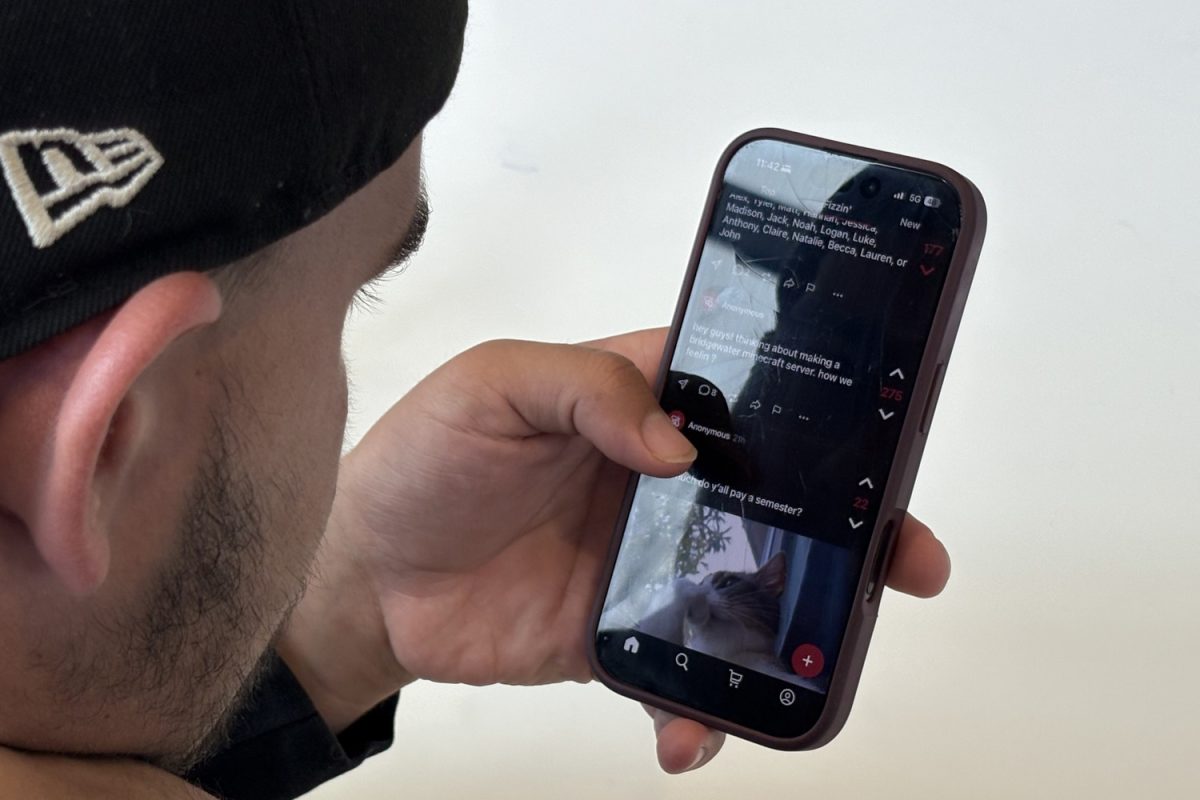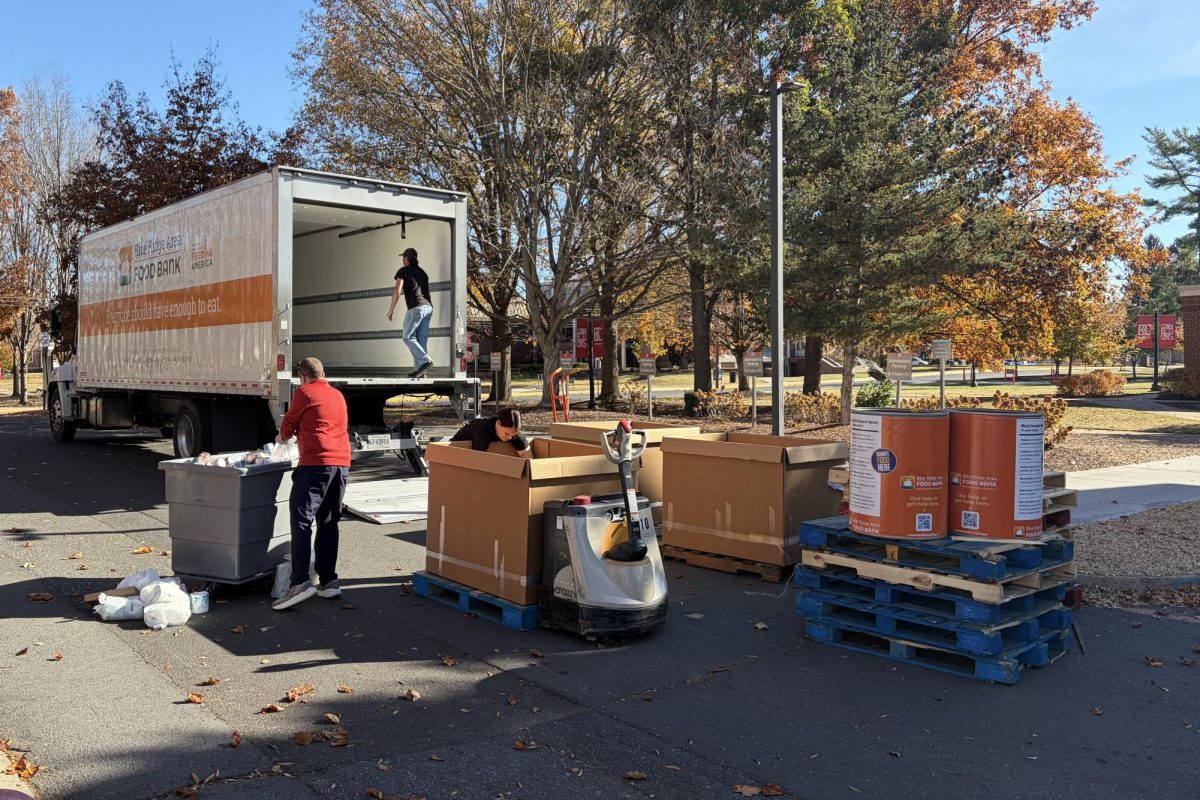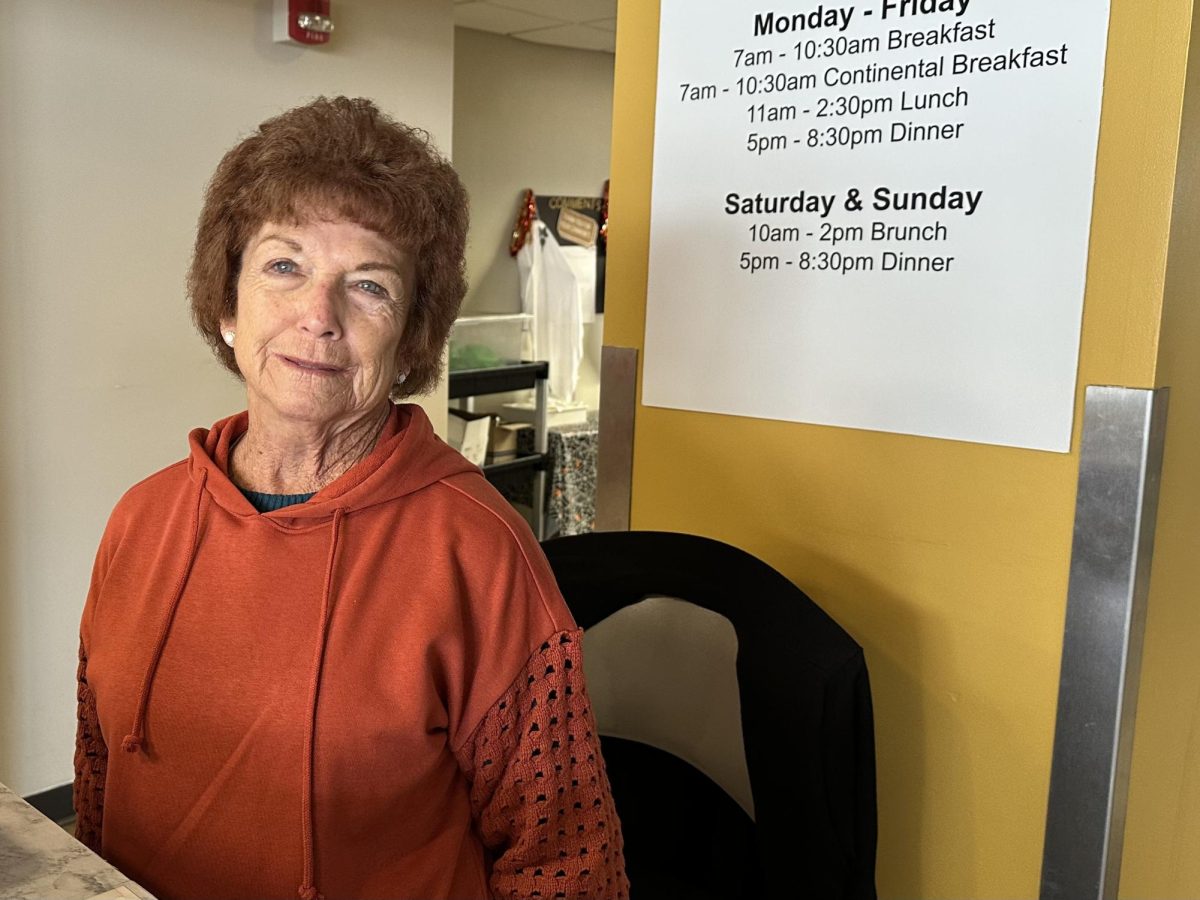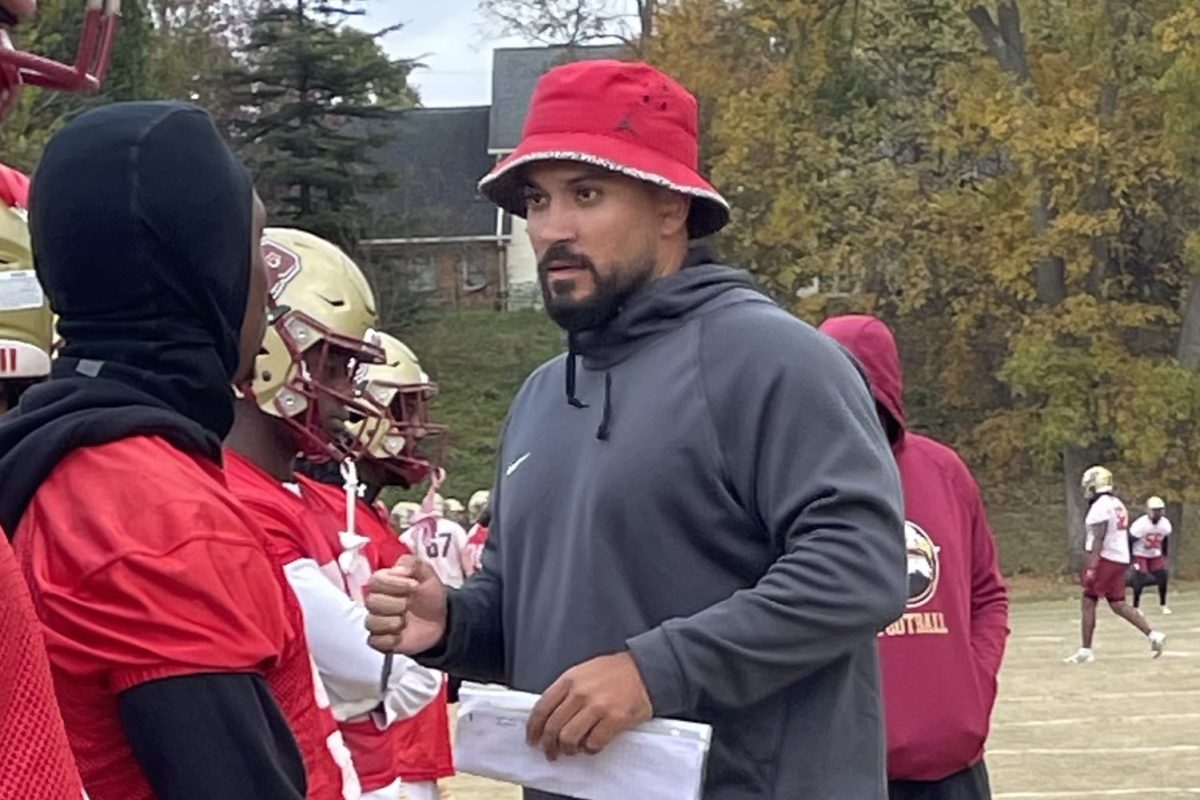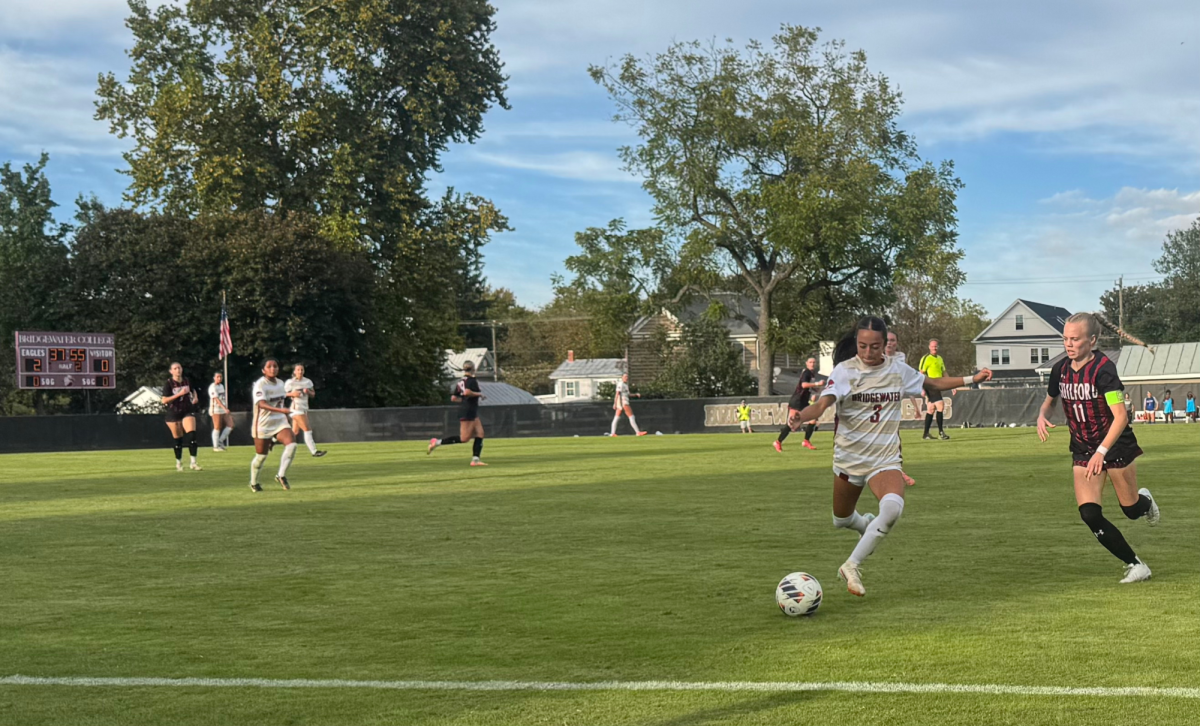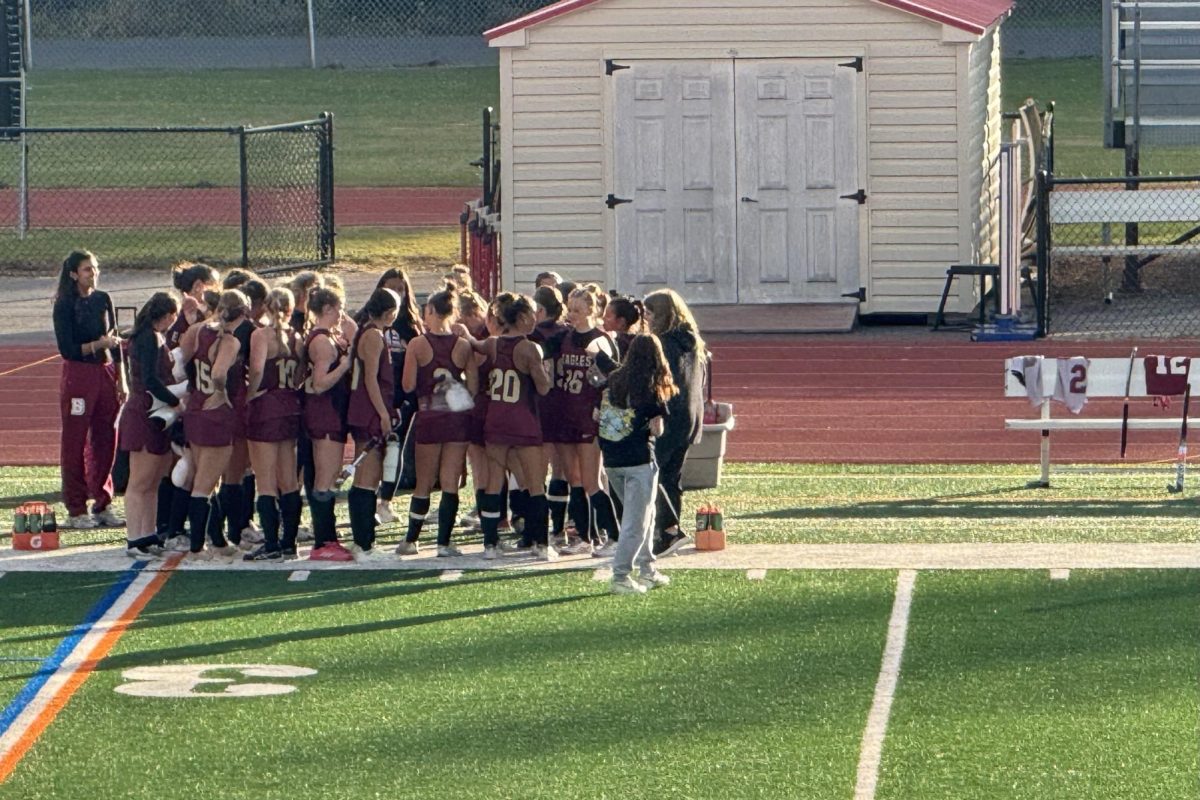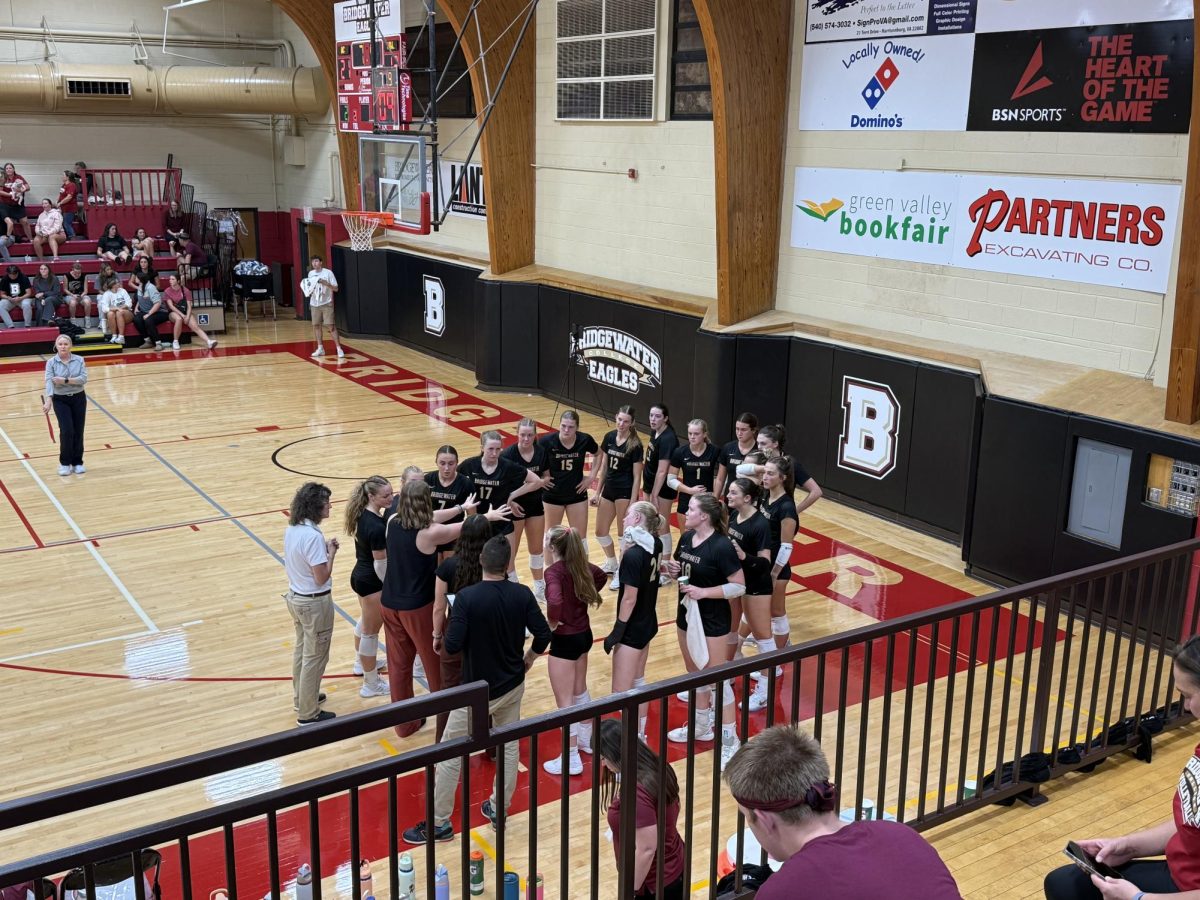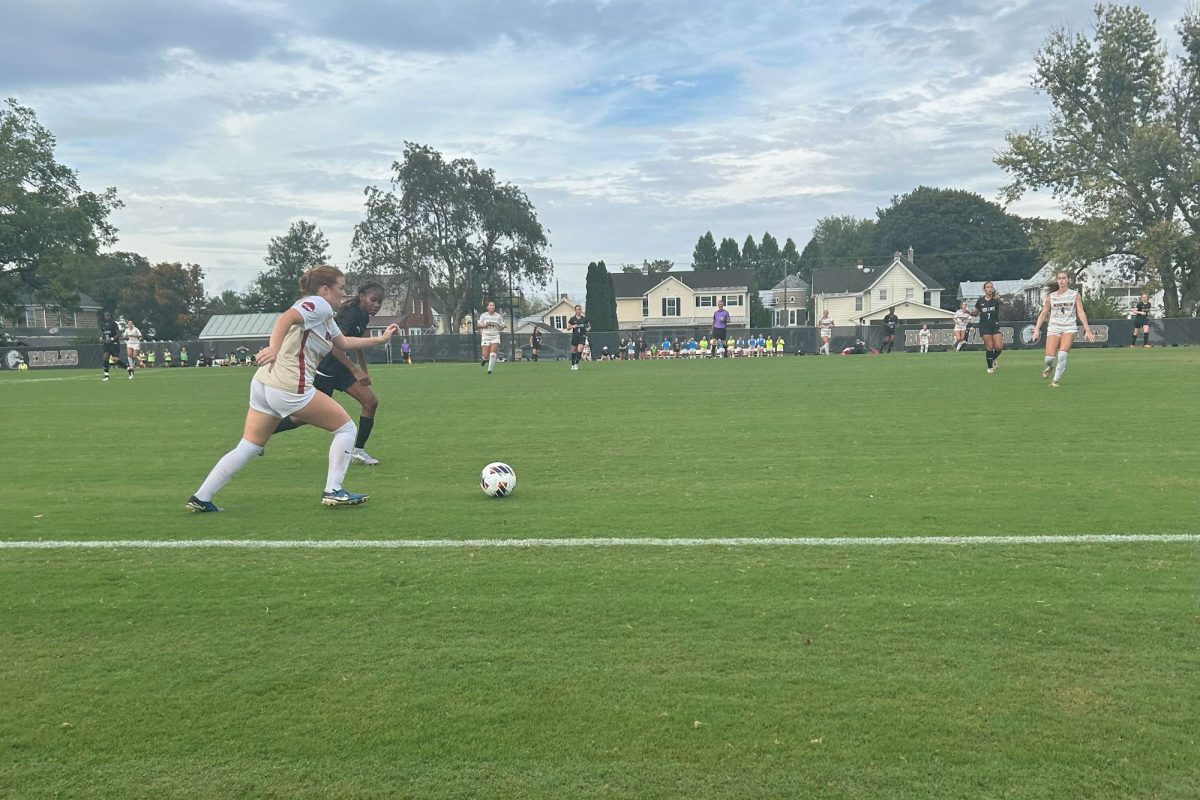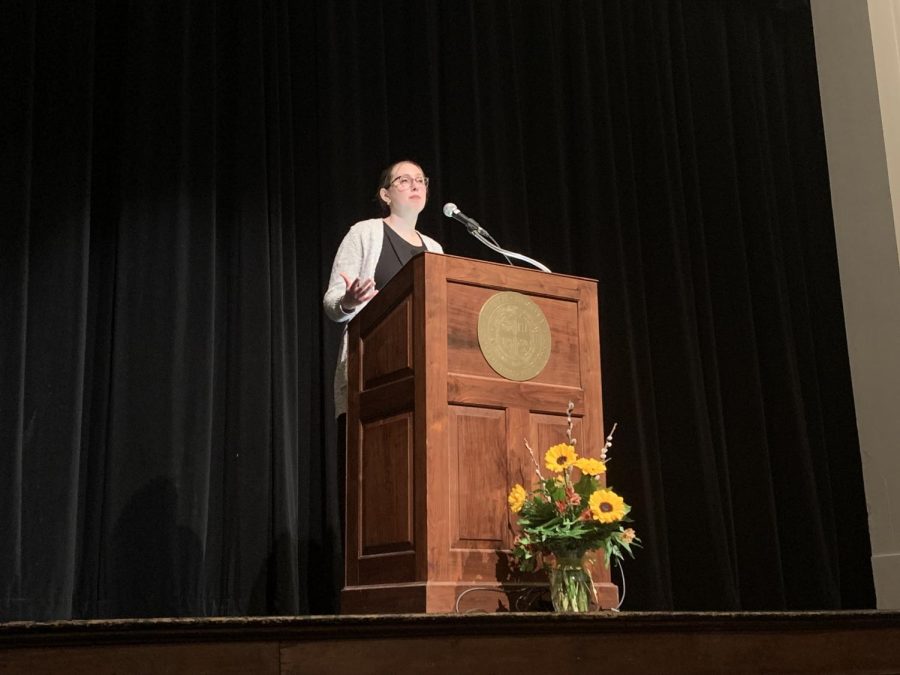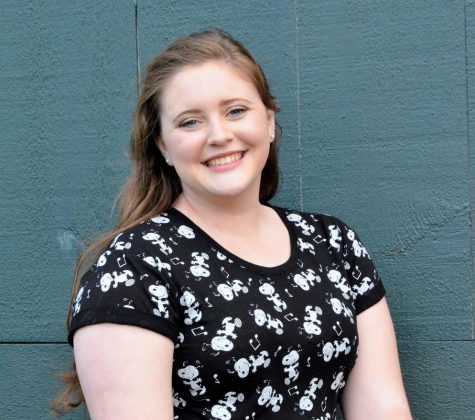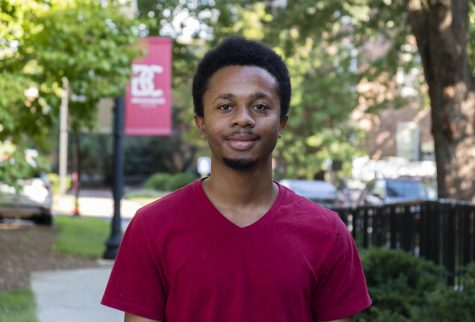Covid-19 and Religious Communities
Emma Green Addresses the Way Forward for American Communities of Faith
Emma Green presented at Bridgewater College on the divisions created in religious communities by the Covid-19 pandemic. She discussed how religious communities can breach the divide and find a way back to normal together.
March 15, 2022
Bridgewater, Va. – Emma Green, a staff writer for The New Yorker, presented at Bridgewater College on March 10 about how religious communities can recover from the divisions caused by the Covid-19 pandemic.
As a journalist, Green focuses on cultural conflicts, namely in religious communities. She discussed how Covid-19 has pulled Americans apart along political lines, which is something that is seen in religious communities, as well as in the public.
“As a religion and philosophy major, I thought that this was a good way to get experience from a journalism point of view as to what other religions experience and be able to use that in my later degree, relating to different religions,” said junior Tori Moats.
Green discussed how Covid-19 created a ‘time of impossible tradeoffs’ in religious communities, between upholding religious practices and prioritizing the health of the congregation.
“There was definitely a lot of debate at my church back at home about whether we should have to wear masks after last summer when things had calmed down a little bit,” said junior Alex Smith. “We don’t know the path forward, and I can definitely relate to that and still having those conversations in my life”
Green went on to say that “Covid has been punishingly divisive” and that trust within communities has disappeared in some ways. She said that her writing methodology for bridging the gaps in communities is to write stories that create worlds that those who the stories are about would recognize as theirs.
“One of the biggest takeaways is that religion is not the answer,” said Smith. “Ms. Green gave some great insights into how division still happens in religious communities. It kind of undercuts my whole idea that it’s because we are losing our sense of faith here in America.”
Green said that through her work she has seen communities be held together during times of division by leaning into the things that connect them, rather than divide them.
“I would say my initial reaction was that I was expecting this to be a little bit more Covid-19 related, but was shockingly surprised that this was more based on community unity – which is something that we can put towards the tragedy that we experienced in February as well as the ongoing release of the masks and things like that,” said Moats.

